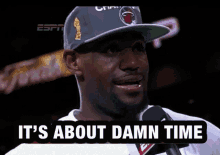Almost completely irrelevant to, let's say, some college athlete betting $50 on something like a UFC fight. People can be corrupt (shocker), and athletes not being able to personally gamble won't stop the above. Not being able to legally gamble won't stop illegal bribery.History Speaks. My edits, word-count restrictions.
Chis Vannini. College Sports Gambling Scandals: A brief history from the Brooklyn Five to Brad Bohannon. Athletic, May 2023.
College sports gambling scandals: A brief history from the Brooklyn Five to Brad Bohannon
By Chris Vannini
May 9, 2023
Sports betting has come to the forefront of the conversation surrounding college athletics. Suspicious wagers on an Alabama baseball game that have led to the dismissal of head coach Brad Bohannon, followed up by Monday’s announcement that Iowa and Iowa State are looking into allegations of online gambling involving at least 41 combined players across multiple sports, highlight how big this issue has become.
1945: The Brooklyn Five
What happened: Five Brooklyn College men’s basketball players accepted $1,000 to intentionally lose a game against Akron. Police, tracking a robbery suspect, discovered the scheme during an unrelated raid on an apartment where the five players were present before the game against Akron was played.
1947-51: Men’s basketball point shaving
What happened: Thirty-three players across seven schools were found to be involved in point shaving over 86 games from 1947 to 1950. Seven players were on the 1949-50 City College of New York men’s basketball team, which won the 1950 NCAA Tournament and NIT (the only double in history). In 1951, Manhattan College center Junius Kellogg was approached by a former Manhattan player and offered $1,000 to fix a game by losing by five or six points. He refused and told his coach and then the police. He later wore a wire to gather evidence on other gamblers, which led the investigation to organized crime.
1957-61: Men’s basketball point shaving
What happened: Molinas, who had escaped the 1951 scandal, became the No. 3 pick in the 1953 NBA Draft, but he was suspended during his rookie season for gambling on games. He stayed involved in the gambling world and helped lead another scheme that touched dozens of players across 22 schools from 1957 to 1961. Florida football player Jon McBeth was approached with a bribe and told his coach. Word made its way to the police again.
1978-79: Boston College men’s basketball
What happened: Several Boston College players were recruited by organized crime to shave points during nine games in the 1978-79 season. Players were paid hundreds of dollars for their participation and given the chance by fixers to earn more by betting on the games. Only four of the nine affected games produced a winning bet, and the scheme fizzled out.
1985: Tulane men’s basketball
What happened: Three Tulane students recruited five players to shave points in two games against Southern Miss and Memphis State. A week after the season, rumors of the fixing spread. A local attorney investigated and told district attorney Harry Connick (father of singer Harry Connick Jr.), who jumped on the case.
1994: Arizona State men’s basketball
What happened: Players Stevin Smith and Isaac Burton were paid by bookmaker Benny Silman to make sure ASU didn’t cover the spread in four games at the end of the 1993-94 season. Smith reportedly owed Silman football gambling debts. Smith received $20,000 ($10,000 in cash and $10,000 in debt wiped away) for shaving points in one game and also bet on his own games.
1994-95 Northwestern
What happened: Northwestern suspended two athletes in late 1994 for betting on games they weren’t involved in, including its then-all-time leading rusher Dennis Lundy on the football team and Kenneth Lee on the men’s basketball team. After returning from suspension, Lee continued gambling and point-shaved three games with teammate Dewey Williams, looking to make sure Northwestern lost games by more than the point spread. Lee received $4,000 and was set to receive another $8,000 for the scheme, but money was lost in the third game when Northwestern covered the spread.
1995: Maryland football and basketball
What happened: A handful of players across both teams bet on college football and basketball games, including record-breaking quarterback Scott Milanovich, who reportedly placed six bets totaling $200. None of those bets were on Maryland games.
1996: Boston College football
What happened: Upwards of 25 to 30 players bet on various sports games through a student bookie who was on the golf team, and two players bet on Boston College to lose an October game against Syracuse, though neither player had a role in the loss. Rumors of gambling had spread among the team, leading to an investigation.
2003: Washington football coach Rick Neuheisel fired for bracket pool
What happened: Neuheisel participated in a neighborhood pool for the 2003 NCAA men’s basketball tournament and initially denied the accusations to NCAA investigators. He had received an internal UW memo that claimed off-campus tournament pools were allowed. An NCAA investigation looked into a potential show-cause penalty for Neuheisel.
2004-06: Toledo football and men’s basketball
What happened: Two Detroit-area businessmen paid Toledo football and men’s basketball players from December 2004 to December 2006 to influence the final score of games. Investigators learned of the scheme in a wiretapped conversation.
2011: University of San Diego basketball
What happened: Former USD assistant coach Thaddeus Brown convinced point guard Brandon Johnson to shave points for up to $10,000 per game during the 2009-10 season, the FBI claimed, adding that at least four games were affected. Johnson was a former star player with NBA dreams whose career had been derailed by injuries. An unrelated drug-trafficking and illegal casino investigation uncovered an individual’s connection with Brown and Johnson, ultimately revealing the basketball scheme.
2012: Auburn men’s basketball
What happened: Point guard Kyievarez Ward was accused of attempting to fix an Auburn game against Arkansas in January 2012. He came off the bench but fell to the floor with an apparent leg injury after 19 seconds. Arkansas won the game. He was suspended before the next Arkansas game in February.
Regardless, the athletes knew their ridiculous and unnecessary restrictions concerning what other citizens have the right to legally have fun with. They'll rightly have to pay some price for that.
Personally, I think gambling is a terrible idea. But I think that's true concerning drinking, fornicating, partying, and a host of other things. That morality shouldn't be legislated, let alone unfairly by the NCAA. Let the school decide their team's policies. The NCAA should get out of the personal lives of athletes when some activity has nothing to do with giving them or anybody else an unfair advantage.

